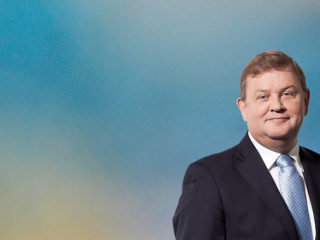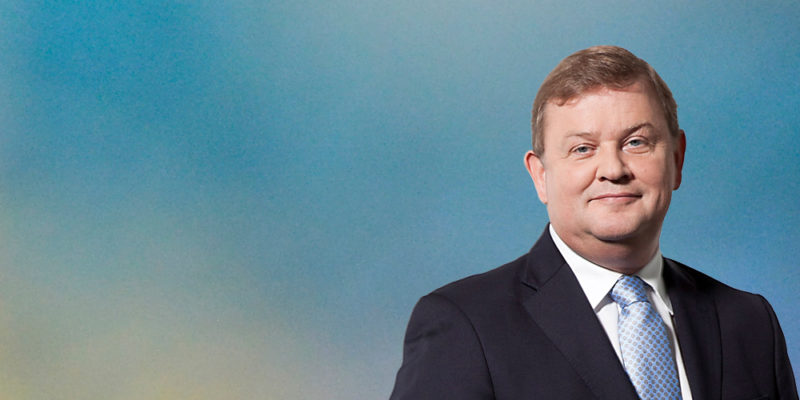
Inspired by the article series “Europe can do better”, published by United Europe and German newspaper “Handelsblatt”, the Dutch newspaper “Het financial Dagblad” has published views of eight Dutch CEOs and their visions for a joint and competitive EU. Please find following the article of Feike Sijbesma, CEO of Royal DSM:
On 23 May the Netherlands were able to vote again. For many in the world this is a – almost unthinkable – privilege. This time we are even allowed to vote for a broader context than just the Netherlands: the European elections. Who would have thought that 75 years ago?
We can be proud and grateful for what we have built up together in the Netherlands since the end of the Second World War. A prosperous country, with innovative entrepreneurship that provides jobs for many. As a small (trade) country, the Netherlands has benefited from globalisation. By tackling major challenges together, such as the flood defences in the 1960s or the transition from coal to gas in the 1970s, by ‘poldering’ together, and by investing in new technologies, the Netherlands is now at the top of many lists. The Netherlands is the global number two in the field of innovation, we are one of the least corrupt countries and Dutch children are among the happiest in the world.
But what has been built up should never be taken for granted. And although globalisation has brought us prosperity, we must also note that certainly in the past 25 years, the (lower) middle incomes in the Netherlands have barely improved. Part of our society – in the Netherlands, in Europe and in the world – has benefited little or hardly from economic growth. The emerging economies, such as China and India, will also claim their share of the world experience. As the Netherlands Institute for Social Research (Sociaal en Cultureel Planbureau) describes, feelings of inequality and insecurity are on the increase among Dutch citizens. A feeling that there is hardly any influence on important decisions that concern us. And there are concerns about jobs and income, the climate – but also its costs – and therefore about our connection and the future, also of our children. Leadership is also responding to this.
EU enlargement is only possible if there is a good basis for fruitful cooperation.
However, the answer to these concerns is not to close ourselves off from globalisation, close our borders and withdraw behind the dikes. Better to build on the good that prosperity has brought us as a small country: working together – in confidence – with an open economy. Being confident does not mean being naive. The European Union has done us much good as a country, but we must ensure that the EU is not overshadowed by a complex bureaucratic structure and that it does not take decisions that we can regulate better at the national or regional level. The rapid growth in the number of EU Member States has gone too fast for some and may have brought too few visible benefits. Further enlargement is only possible if there is a good basis for fruitful cooperation, not only in the economic sphere but also in the political and social spheres. Shared norms and values are of great importance here.
Not everyone realises that Europe is the world’s largest economy, in which others are keen to invest. We can benefit from this. Our economy offers unprecedented opportunities for innovation, education, infrastructure and labour market opportunities. Compared to other continents, business in Europe is also much more advanced in terms of sustainability. More and more companies are realising that a company’s task is more than just making money. Doing well financially goes hand in hand with doing good for the world and our society. Here, too, there are opportunities.
It is essential that the EU forms a strong unity with respect to the other ‘great’ powers. This can only be achieved by making a common voice heard. In doing so, we must make use of the differences, the diversity, in Europe. For example, by combining – perhaps clichés – German engineering, Italian art and design and Dutch commercial spirit. Because that way we can learn from each other and move forward.
In addition to the economy, this progress is also about climate, achieving the Paris objectives with a European prize for CO2 as an incentive, a sustainable food system, biodiversity, the energy transition, a circular economy, innovation, education and common refugee policy. Continued prosperity requires a collaborative Europe in which we respond to the problems with courage and innovation. Where we take everyone with us and everyone can benefit from our strengths. Using the benefits of globalisation, but much more inclusive than hitherto, a Netherlands and Europe for and with all, focused on prosperity and well-being for future generations as well.



